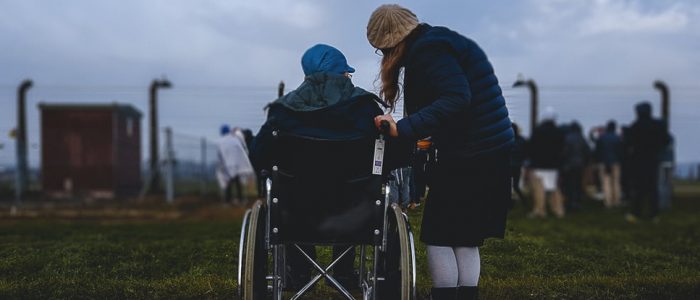The Power of Relationships in Tackling Loneliness

Imagine the ice-breaker scenario: if you had to leave your house immediately, and could only take one thing with you, what would it be?
Emergency situations, whether real or imagined, have a way of bringing things into sharp focus. And the coronavirus pandemic has likewise brought adjustment to many of the nation’s priorities. Suddenly, what once seemed important—the outcome of the current Premier League season, say—now appears considerably less so, whilst new challenges seem to emerge out of nowhere. (How many of us thought more about handwash and toilet paper supply in the first week of lockdown than we ever had done before?)
As the reality of the health emergency facing our nation began to sink in, and the government’s recommended social distancing measures became increasingly severe, many of us were forced to ask the question, “What matters most?”. The government, too, has faced a similar re-evaluation. With officials across departments redeployed to work on the Covid response, a number of policy agendas that had been front-and-centre have temporarily receded.
But there is one policy area that ought to be considered indispensable: loneliness. Last month, the Culture Secretary launched a new campaign, alongside advice, to get the nation talking openly about this issue, whilst funding has been made available for charities responding directly.
It’s not hard to see why. Even before the lockdown loneliness affected an estimated nine million people in the UK. For those already lonely, policies of restricted movement and social isolation could well make things worse. At the same time, for the rest of the population, the need to remain indoors for extended periods brings the issue much closer to home. It’s clear that, for young and old alike, the prospect of increased loneliness presents a public health challenge of its own.
But what if this very real challenge also offered an opportunity? What if the current emergency sparked a wave of response that laid a foundation for change long after the immediate threat of COVID-19 has passed? In the coming months, as the government begins to talk about easing the lockdown, the challenge of loneliness certainly won’t automatically go away. But perhaps we will all be more aware of what it feels like to face isolation, and our communities – our neighbourhoods, faith groups, and charities – will be more ready to offer support to those who need it most.
We are already aware that faith communities up and down the country are doing much to tackle loneliness. FaithAction’s own report, published last year, highlighted this. And our recent publication, Extending Our Reach in Tackling Loneliness, takes a look at social prescribing as just one way in which faith groups can link into health and care structures to help those who are lonely and isolated.
There are clearly increased opportunities, as well as challenges, for all of us in these times. The voluntary sector must consider, amidst unprecedented financial strain, how it can shift and adapt to meet demand. We have seen some excellent examples: from innovative befriending schemes to tailored support for care homes. But there are still huge pressures on a sector whose experience and ground-level expertise are needed now more than ever.
On a personal level, perhaps we may consider that the power to tackle loneliness often rests in our own hand: sometimes the smallest act of kindness to someone in our sphere can make a huge difference. Because, as we continue to assess our priorities at this time, and as our thoughts shift to family and friends who may well face a continued period of shielding, perhaps we are realising that it isn’t our possessions—or toiletries!—that matter most, but our relationships.



